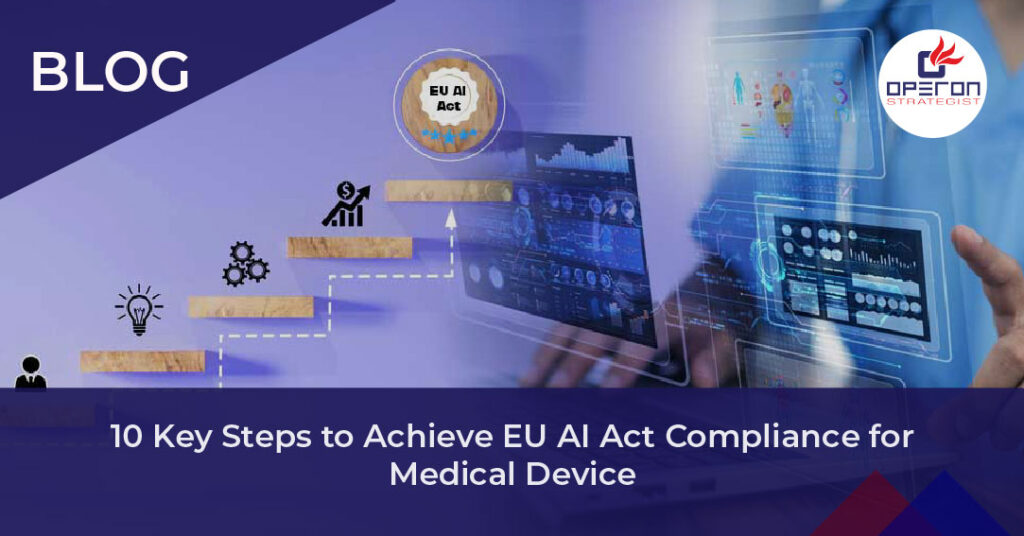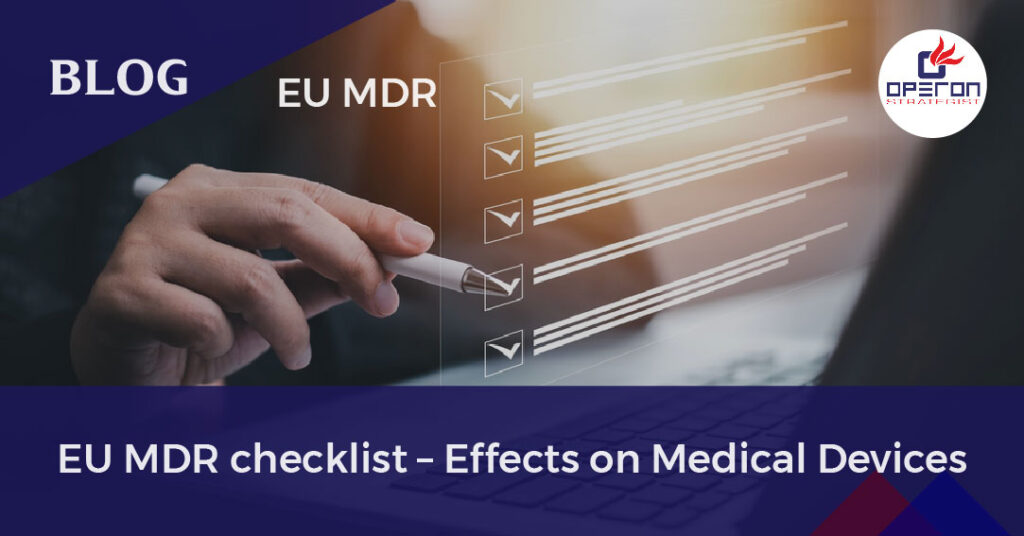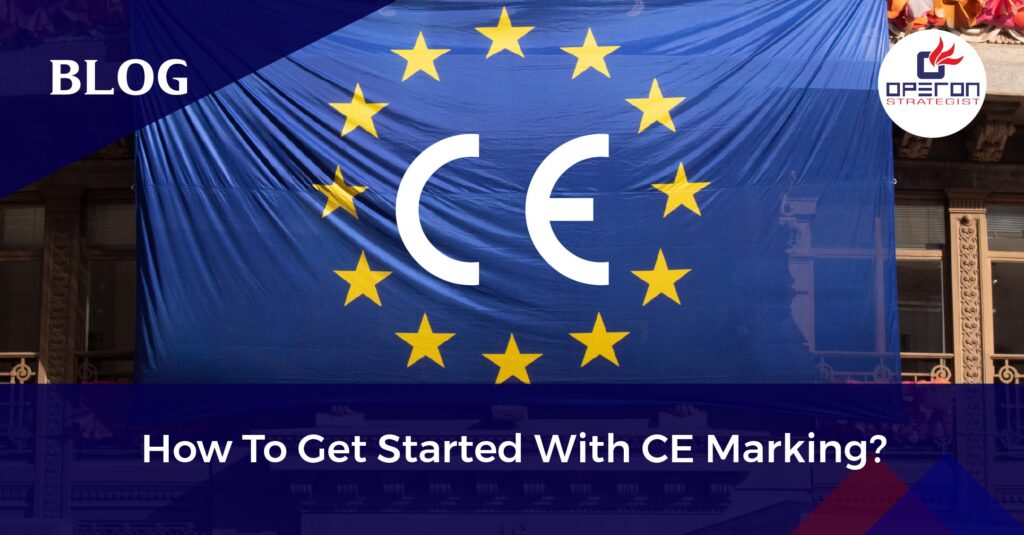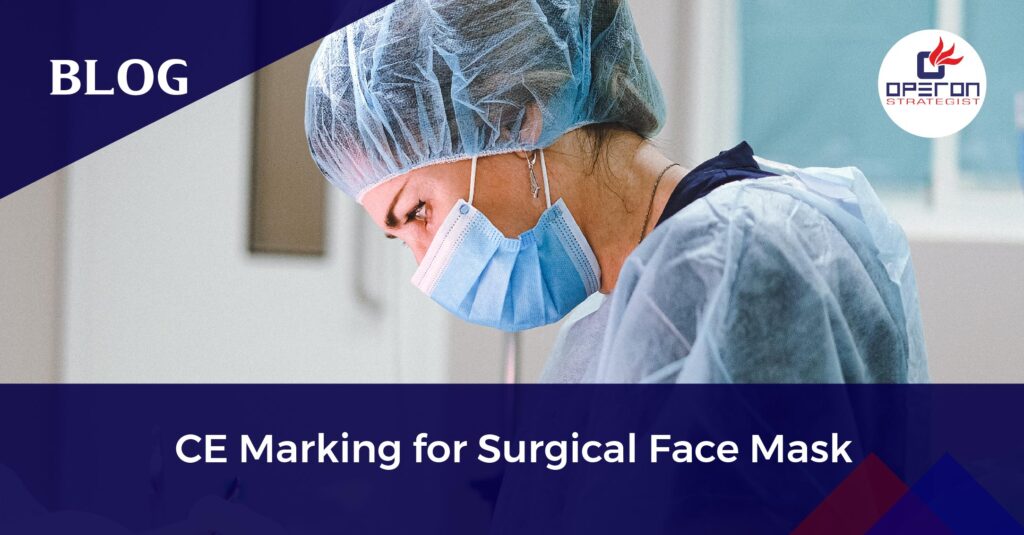EU AI Act Compliance: Understanding the AI Act and Its Impact on Healthcare
EU AI Act compliance marks a monumental shift in how artificial intelligence is regulated across industries, especially in healthcare. As of August 1, 2024, the European Union’s AI Act became the first comprehensive regulation aimed at governing AI technologies globally. This new regulation establishes a unified framework for all 27 EU member states, ensuring fair competition and consistent standards for businesses operating within the EU.
For the healthcare sector, the AI Act carries specific significance. Many AI applications used in medical devices are classified as high-risk, meaning they face more stringent regulatory requirements. Healthcare organizations must carefully assess their AI systems to ensure they meet safety, transparency, and human oversight standards as mandated by the EU AI Act.
Looking For a Medical Device Regulatory Consultant?
Let’s have a word about your next project
10 Key Steps to Achieve EU AI Act Compliance for Healthcare Providers
- Assess Your AI Systems – First, determine whether your medical devices include AI/ML technologies. If so, classify these systems as “high-risk” under the EU AI Act and prepare them for registration in the EU’s high-risk AI system database.
- Implement an AI Quality Management System (QMS) – Adapt your existing medical device QMS to include AI-specific requirements. Ensure alignment with Article 17 of the EU AI Act and consider integrating it with ISO/IEC 13485, which is the standard for medical device quality management.
- Create Comprehensive Technical Documentation – Ensure you develop detailed documentation for your AI systems as outlined in Annex IV of the Act. This should cover system design, data requirements, training methods, and performance metrics, all while syncing with existing EU MDR/IVDR documentation.
- Establish a Robust Risk Management System – Identify, evaluate, and mitigate AI-related risks. This should be integrated with the risk management practices from the EU MDR to address potential health, safety, and human rights concerns.
- Strengthen Your Data Governance – Assess the quality, availability, and bias of the datasets used in your AI systems. Consider factors such as geographical location, behavioral patterns, and context to ensure your data is unbiased and reliable.
- Focus on Transparency and Human Oversight – Transparency is a key requirement under the EU AI Act. Make sure your AI systems are transparent, and establish robust human oversight mechanisms to ensure accountability.
- Set Up Incident Reporting and Ongoing Monitoring – Develop a system to report AI-related incidents and ensure continuous post-market monitoring of your AI systems to track their performance and address any issues that arise.
- Conduct Fundamental Rights Impact Assessments – Evaluate the potential impacts of your AI systems on fundamental rights, and take necessary steps to mitigate any risks identified during this process.
- Designate an EU Authorized Representative – If your business is based outside the EU, it is mandatory to appoint an authorized representative to handle EU AI Act compliance on your behalf.
- Prepare for Conformity Assessment – Conduct internal assessments to ensure your AI systems meet the regulatory requirements. Work with notified bodies for certification, particularly for high-risk systems, ensuring compliance with both MDR/IVDR and the EU AI Act.
Want to Know More On EU AI Act Compliance?
How Operon Strategist Helps with EU AI Act Compliance
As a trusted name in regulatory consulting, Operon Strategist plays a pivotal role in helping manufacturers navigate the complexities of PSUR preparation and compliance.
- Expert Guidance: Operon Strategist ensures clarity in understanding and implementing the MDR requirements, reducing the burden on manufacturers.
- Streamlined Processes: The team assists in organizing and presenting PSUR data effectively, adhering to all nine compliance rules.
- Risk Mitigation: With Operon’s strategic support, manufacturers can proactively address compliance gaps and minimize regulatory risks.
- Comprehensive Solutions: Operon’s expertise extends across a wide range of devices, offering tailored solutions for both legacy and MDR-compliant products.
Operon Strategist delivers complete solutions for obtaining regulatory approvals, including European CE Marking, FDA 510(k), Indian CDSCO Import Registration, SFDA, and UKCA compliance. We also support the establishment of manufacturing facilities by offering services such as facility layout design, cleanroom planning, machine validation, and ensuring facility adherence to global regulatory standards ensuring quality through ISO 13485, FDA QSR and MDSAP compliance and all regulatory approvals.
By choosing Operon Strategist, manufacturers gain a reliable partner dedicated to ensuring regulatory success and market readiness. Their proactive approach transforms challenges into opportunities, empowering businesses to thrive in the global medical device market.




